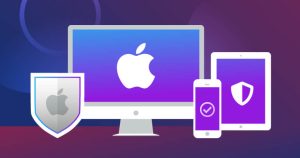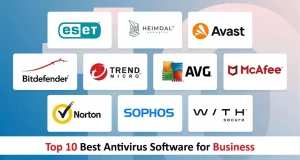In today’s digital age, protecting your computer and personal data from malware, viruses, and other cyber threats is more important than ever. One of the most effective ways to safeguard your computer is by using antivirus software. However, with so many options available in the market, it can be overwhelming to choose the right antivirus software and use it effectively. To help you out, we’ve compiled a list of the top 7 essential tips for choosing and using antivirus software.
- Research and compare different antivirus software: Before purchasing antivirus software, it’s crucial to do your research and compare different options. Look for reputable brands that have a proven track record of detecting and removing a wide range of malware and viruses. Read customer reviews and check independent test results to assess the effectiveness of the software.
- Opt for a comprehensive security suite: Instead of standalone antivirus software, consider opting for a comprehensive security suite that includes additional features such as firewall protection, spam filtering, and web browsing protection. This can provide you with a holistic approach to security and help safeguard your computer from various threats.
- Keep your antivirus software up-to-date: Cyber threats are constantly evolving, and new malware and viruses emerge regularly. It’s crucial to keep your antivirus software up-to-date to ensure it can effectively detect and remove the latest threats. Enable automatic updates, and regularly check for updates manually to make sure you have the latest virus definitions and security patches.
- Schedule regular scans: Antivirus software typically offers various scanning options, including quick scans, full scans, and custom scans. Schedule regular scans to thoroughly scan your computer for any potential malware or viruses. Perform full scans at least once a week and quick scans more frequently, especially after downloading files or visiting unfamiliar websites.
- Be cautious with email attachments and downloads: One common way malware and viruses can enter your computer is through email attachments and downloads. Be cautious when opening email attachments, especially if they are from unknown senders. Avoid downloading files or software from suspicious websites, and always verify the source before clicking on any links or downloading any files.
- Enable real-time scanning: Real-time scanning is a feature offered by most antivirus software that continuously monitors your computer for any potential threats in real time. Make sure to enable real-time scanning to detect and block any malware or viruses from entering your computer.
- Keep your operating system and software updated: Keeping your operating system and software updated is another essential step in protecting your computer from malware and viruses. Software updates often include security patches that fix vulnerabilities and help prevent cyber threats. Enable automatic updates for your operating system and other software, and regularly check for updates manually if needed.
In conclusion, choosing the right antivirus software and using it effectively is crucial in keeping your computer and personal data safe from malware and viruses. By following these essential tips, you can enhance your computer’s security and minimize the risk of falling victim to cyber threats. Remember to research and compare different antivirus software, keep it up-to-date, schedule regular scans, be cautious with email attachments and downloads, enable real-time scanning, and keep your operating system and software updated for optimal protection. Stay vigilant and proactive in safeguarding your computer, and prioritize cybersecurity in today’s digital world.






